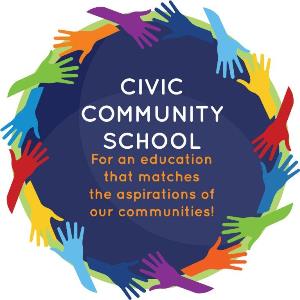Context
Civic Community School was the theme of the Education Summit held in Edmonton (Alberta), in April of 2012 which gathered more than 200 participants with an interest in French-language education in minority settings in Canada.
The concept of Civic Community School stems from two summits on education which took place in 2005 and 2012. Key organizations involved in the development of French-language education in Canada attended these events.
Together these organizations agreed on the need for a modern vision of French-language education based on successful practices and a redefined relationship between schools and their communities.
What is a Civic Community School?
It is a partnership that seeks to redefine the relationship between communities and schools in order to encourage all parties to commit to fostering success for learners of all ages and thus help our communities flourish.
How does that work?
It can be achieved in different ways, such as…
Workshops and performances in French for young children
Family literacy programs in our schools
Involvement of teenagers in municipal and community governance
A multicultural festival or a country fair to pay tribute to French language and culture
Youth leadership programs in our communities
A community garden at school
Artistic and cultural activities to enhance the scope of French language and culture at the post-secondary level
School/community projects to raise student awareneness on human rights issues using information kits, forums or columns
Anti-bullying measures in the school and the community
An entrepreneurship program for young adults
A student newspaper or tv newscast produced by students
Who participates?
All members of the community are invited to take part, including: Decision-makers, learners of all ages, families, teachers, principals, school administrators and citizens.
How can we accomplish this?
First, by taking a fresh look at the relationship between schools and their community. Schools and communities must work together. Then, everyone has a role to play…
Educational institutions officials should:
- Foster the transmission and appropriation of language and culture in schools and in the community by involving community members
- Promote citizens involvement in learning
- Participate in community development
Community members should:
- Actively support francophone community organizations and French-language educational institutions
- Participate in their development and thus ensure their vitality and sustainability
- Foster the continuum of French-language education
What are the advantages?
There are several!
- Increased attractiveness of the French language and culture
- Better use of French-language programs and services
- Closer ties between generations
- Raised awareness of French-language post-secondary education
- Enhanced citizen commitment
- Development of citizens’ skills in French
- Rise in school enrolment
- Positive media coverage of Francophone communities
- Pride in Francophone identity
- Empowerment of the Francophone community and educational network
 École communautaire citoyenne
École communautaire citoyenne